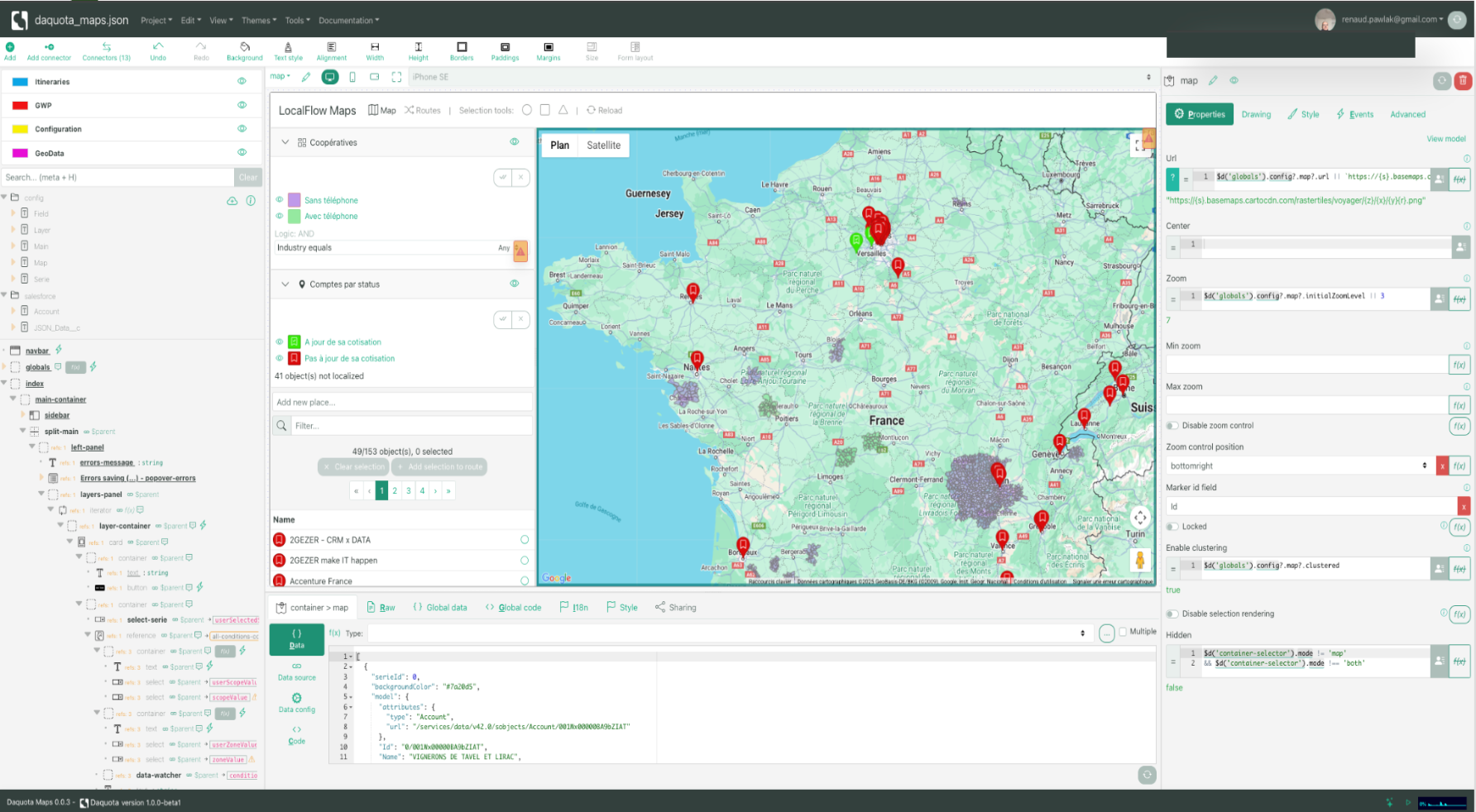built for purposeful front-end development
built for purposeful front-end development
In-house development Studio, custom-built to create lean, modular, and sustainable components.
Grounded in two key principles:
Feature-Oriented Software Design (FOSD)
Reduce complexity
Avoid unnecessary logic
Keep each function meaningful
More detailsLocal-First Architecture
Reduce infrastructure load
Enable offline capabilities
Minimize energy usage
More detailsFeature-Oriented Software Design (FOSD)
Reduce complexity by isolating features
Avoid unnecessary logic that slows your teams
Keep only the essential, useful functions
Local-First Architecture
Lighten your infrastructure and hosting costs
Enable offline access for uninterrupted use
Minimize energy consumption & carbon footprint
Access to the inner structure of each component to shape what your business needs.
Shape it according to your business needs, with complete transparency and without any external dependencies:
Adapt your components
to real-world business processes
Add features
to really serve your teams objectives
Co-create
industry-specific solutions with us
Align your components
to your business processes
Add the features
your teams really need
Co-create
industry-specific solutions with us
Why DAQUOTA stands out?
Why DAQUOTA stands out
Eco-designed by default
Design business-specific interfaces without heavy engineering.
Switch to full-code only when needed without breaking your app.
Open API connectors
Front-end apps can connect with any external data sources and APIs
Existing connectors for Salesforce, Odoo and others.
Ready to use components
Deliver MVPs in days not weeks, using modular UI building blocks.
Reduce development and maintenant costs by 30-50% over time.
No lock-in, no black boxes
Standards-based, standalone web components.
No hidden logic, no Cloud dependencies.
AI-assisted productivity
Automate repetitive UI tasks.
Accelerate iterations with contextual code generation.
Eco-designed by default
Design business-specific interfaces without heavy engineering.
Switch to full-code only when needed without breaking your app.
Open API connectors
Daquota front-end apps can connect with any external data sources or APIs.
Existing connectors for Salesforce, Odoo and other systems.
Ready to use components
Deliver MVPs in days not weeks, using modular UI building blocks.
Reduce development and maintenance costs by 30–50% over time.
No lock-in, no black boxes
Standards-based, standalone web components. No hidden logic, no cloud dependencies.
AI-assisted productivity
Automate repetitive UI tasks and accelerate iterations with contextual code generation.
What DAQUOTA can be used for (or not)
What DAQUOTA
can be used for (or not)
Build front-end for B2B applications with complex data lifecycles
Build front-end for mobile and offline B2B applications
Save network traffic between your front-end and your back in order to limit peeks and optimize server provisioning
Limit fatware effects by managing features
Implement SPL for your front-end
Postpone network traffic in order to switch off back-end services and save money
Build back-end (services, API, workflows, database)
Implement Software Product Lines (SPL) for your back-end
Build B2C websites
Build static websites
Monitor energy consumption of your IT
Build front-end for B2B applications with complex data lifecycles
Build front-end for mobile and offline B2B applications
Save network traffic between your front-end and your back in order to limit peeks and optimize server provisioning
Limit fatware effects by managing features
Implement Software Product Lines for your front-end
Postpone network traffic in order to switch off back-end services and save money
Build back-end (services, API, workflows, database)
Implement Software Product Lines (SPL) for your back-end
Build B2C websites
Build static websites
Monitor energy consumption of your IT
Overview
Development of LocalFlow Maps in Daquota


